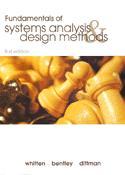Object-Oriented Analysis and Design (Paperback)
暫譯: 物件導向分析與設計 (平裝本)
Andrew Haigh
- 出版商: McGraw-Hill Education
- 出版日期: 2001-07-30
- 售價: $1,690
- 貴賓價: 9.5 折 $1,606
- 語言: 英文
- 頁數: 454
- 裝訂: Paperback
- ISBN: 0072133147
- ISBN-13: 9780072133141
-
相關分類:
Object-oriented
已絕版
買這商品的人也買了...
-
 Computer Graphics: Principles and Practice in C, 2/e (Hardcover)
Computer Graphics: Principles and Practice in C, 2/e (Hardcover)$1,600$1,568 -
 Discrete-Time Signal Processing, 2/e (修訂版)
Discrete-Time Signal Processing, 2/e (修訂版)$1,060$1,039 -
 Data Mining: Concepts and Techniques
Data Mining: Concepts and Techniques$2,530$2,404 -
 SQL Server 2000 管理實務
SQL Server 2000 管理實務$680$578 -
 Java 2 語言實務
Java 2 語言實務$400$340 -
 Operating System Concepts, 6/e
Operating System Concepts, 6/e$1,050$1,029 -
 C++ Primer, 3/e 中文版
C++ Primer, 3/e 中文版$980$774 -
 Introduction to Algorithms, 2/e (Hardcover)
Introduction to Algorithms, 2/e (Hardcover)$990$970 -
 JavaScript 範例活用辭典
JavaScript 範例活用辭典$450$351 -
 CWNA Certified Wireless Network Administrator Official Study Guide (Exam PW0-100
CWNA Certified Wireless Network Administrator Official Study Guide (Exam PW0-100$2,440$2,318 -
 Java 完美經典優質學習篇
Java 完美經典優質學習篇$750$638 -
 Red Hat Linux 9 實務應用
Red Hat Linux 9 實務應用$650$553 -
 802.11 無線網路技術通論 (802.11 Wireless Networks: The Definitive Guide)
802.11 無線網路技術通論 (802.11 Wireless Networks: The Definitive Guide)$760$600 -
 ASP.NET 程式設計徹底研究
ASP.NET 程式設計徹底研究$590$466 -
 Borland 傳奇
Borland 傳奇$280$221 -
 Building Embedded Linux Systems
Building Embedded Linux Systems$1,650$1,568 -
 Red Hat Linux 9 架站實務
Red Hat Linux 9 架站實務$620$527 -
 Embedded Linux 嵌入式系統原理與實務
Embedded Linux 嵌入式系統原理與實務$860$731 -
 Java Multithread Design Pattern-Java多執行緒與平行處理
Java Multithread Design Pattern-Java多執行緒與平行處理$560$437 -
 STRUTS 實作手冊(Struts in Action: Building Web Applications with the Leading Java Framework)
STRUTS 實作手冊(Struts in Action: Building Web Applications with the Leading Java Framework)$690$538 -
 程式設計專家手冊 (The Practice of Programming)
程式設計專家手冊 (The Practice of Programming)$420$332 -
 鳥哥的 Linux 私房菜-伺服器架設篇
鳥哥的 Linux 私房菜-伺服器架設篇$750$638 -
 osCommerce 購物網站架設實戰
osCommerce 購物網站架設實戰$550$468 -
 Web 配色事典﹝活用網頁安全色﹞
Web 配色事典﹝活用網頁安全色﹞$390$304 -
 Fundamentals of Systems Analysis and Design Methods
Fundamentals of Systems Analysis and Design Methods$950$931
相關主題
商品描述
Comprehensive introduction to OOAD principles using UML v1.4, along with tried and trusted techniques for building real-world applications. --Dilhar Desilva, Member of the UML Core Team, member of the UML v1.1 Semantics Task Force, and member of the UML RTF
Develop essential analysis and design skills using UML v1.4
Uncover effective methods of designing fully functional object-oriented software. From analyzing needs to designing applications to implementing the final product, Object Oriented Analysis and Design contains the techniques used by professionals worldwide. Inside, youll find comprehensive instructions to UML v1.4 notation for analyzing design strength. Also included are strategies for debugging software using three major debugging tools (DBX, GDB and JDB) as well as for porting to other operating systems, languages, and platforms. In addition, youll get utilities for maintaining source code and methods of recording error reports, enhancement requests, and regression tests. Loaded with examples, this comprehensive book provides the expertise needed to oversee all aspects of successful design.
- Learn the fundamentals of object-orientation, including identifying
objects, their classes, attributes, and methods
- Explore information-gathering techniques to determine high level system
requirements
- Learn how to use analysis documents defined by the UML v1.4 standard
- Master advanced design principles and understand what makes for good
design
- Identify and avoid inappropriate design schemes
- Implement advanced design constructs, such as API and threading
- Develop an efficient testing system
- Understand the differences between stress and scalability testing
- Follow examples of debugging using three widely used tools (DBX, GDB, and
JDB)
- Add valuable flexibility needed when porting across operating systems,
platforms, and languages
Contents
Part 1: What Is Object
Orientation?
1 Introduction to Object
Orientation
Part 2: Analysis
2 Analysis
Part 3: Design
3 Design
Dos
4 Design Donts
5 Advanced
Design
Part 4: Programming
6
Testing
7 Debugging
8
Porting
9 Application Lifecycle
Part 5:
Case Studies
10 Case Study 1- Simulated
Company
11 Developing a Multithreaded Airport
Simulation
Appendix: Philosopher Source
Code
Index
商品描述(中文翻譯)
全面介紹使用 UML v1.4 的物件導向分析與設計(OOAD)原則,以及建立實際應用程式的可靠技術。--Dilhar Desilva,UML 核心團隊成員,UML v1.1 語意工作小組成員,以及 UML RTF 成員
發展使用 UML v1.4 的基本分析與設計技能
揭示設計完全功能的物件導向軟體的有效方法。從需求分析到應用程式設計,再到最終產品的實現,《物件導向分析與設計》包含了全球專業人士使用的技術。在書中,您將找到針對分析設計強度的 UML v1.4 符號的全面指導。還包括使用三個主要除錯工具(DBX、GDB 和 JDB)進行軟體除錯的策略,以及移植到其他作業系統、語言和平台的策略。此外,您將獲得維護源代碼的工具和記錄錯誤報告、增強請求和回歸測試的方法。這本內容豐富的書籍提供了監督成功設計所有方面所需的專業知識。
- 學習物件導向的基本原則,包括識別物件、它們的類別、屬性和方法
- 探索信息收集技術以確定高層系統需求
- 學習如何使用 UML v1.4 標準定義的分析文件
- 精通進階設計原則,了解良好設計的要素
- 識別並避免不當的設計方案
- 實施進階設計結構,如 API 和多執行緒
- 開發高效的測試系統
- 理解壓力測試與可擴展性測試之間的差異
- 跟隨使用三個廣泛使用的工具(DBX、GDB 和 JDB)的除錯範例
- 增加在不同作業系統、平台和語言之間移植所需的靈活性
**目錄**
**第一部分:什麼是物件導向?**
1 物件導向簡介
**第二部分:分析**
2 分析
**第三部分:設計**
3 設計注意事項
4 設計禁忌
5 進階設計
**第四部分:程式設計**
6 測試
7 除錯
8 移植
9 應用程式生命週期
**第五部分:案例研究**
10 案例研究 1 - 模擬公司
11 開發多執行緒機場模擬
附錄:哲學家源代碼
索引











